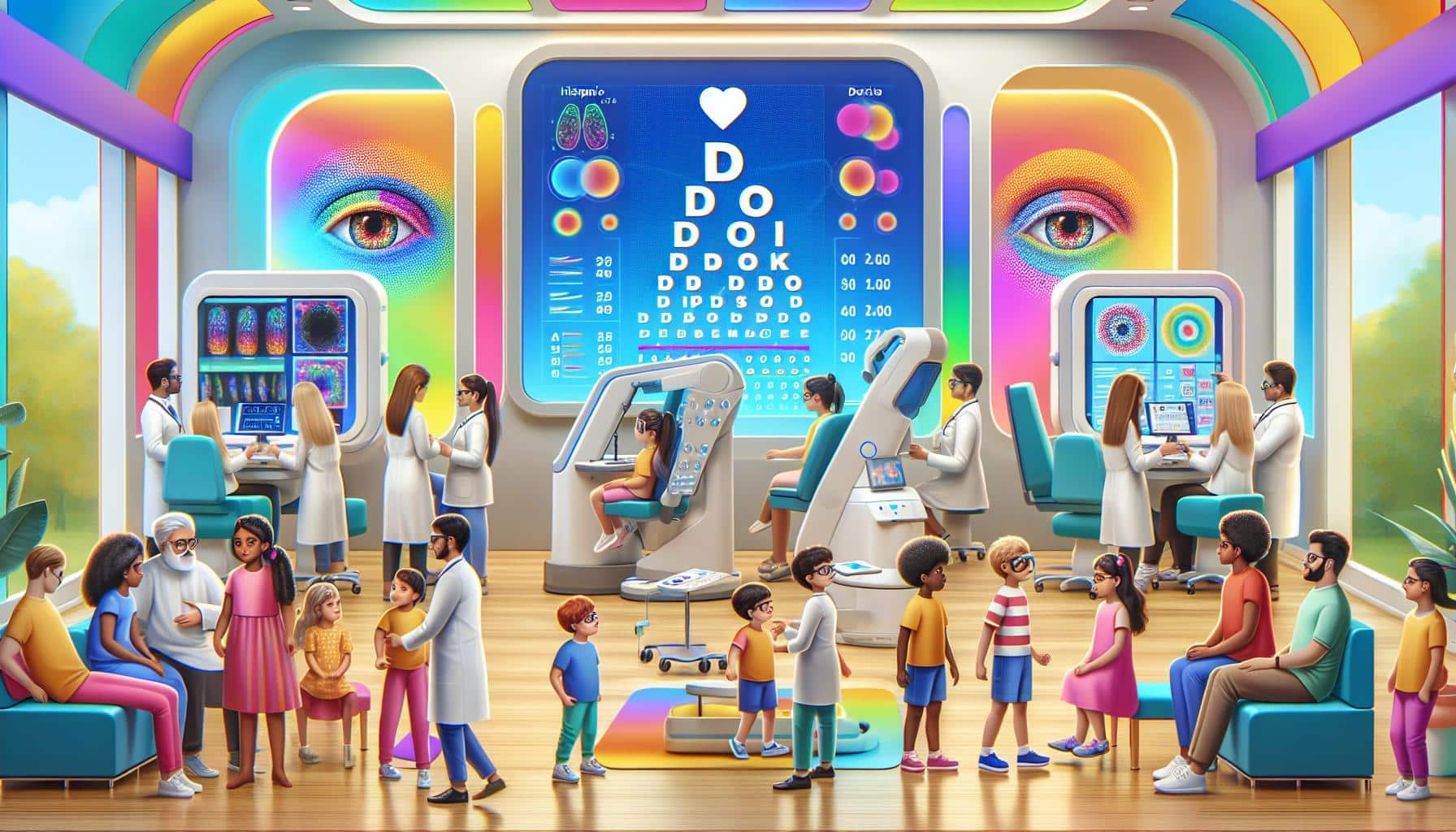Autonomous AI Diabetic Eye Exam Increases Screening Rates in Youth with Diabetes
A groundbreaking study published in Nature Communications has revealed that an autonomous artificial intelligence (AI) diabetic eye exam significantly increases the completion rates of diabetic eye screenings among youth with diabetes. Led by Dr. Risa M. Wolf from the Johns Hopkins School of Medicine, the research team conducted a parallel randomized controlled trial involving youth between the ages of 8 and 21 who had either type 1 or type 2 diabetes. The results of the study have immense implications for improving the care and management of diabetes-related eye disease in this vulnerable population.
Study Finds Higher Diabetic Eye Exam Completion Rate with AI Technology
The study randomly assigned participants to one of two groups: those who received an autonomous AI diabetic eye exam at the point of care, and those who underwent scripted eye care provider referral and education. Of the 81 participants in the intervention group, an impressive 100 percent completed a diabetic eye exam within six months, compared to just 22 percent in the control group of 83 participants. This significant discrepancy highlights the positive impact of AI technology on screening rates and the potential for improving the overall detection and management of diabetic eye disease.
AI Diabetic Eye Exam Improves Health Equity and Prevents Disease Progression
Dr. Wolf emphasizes the potential of AI technology to improve health equity and prevent the progression of diabetic eye disease. By offering autonomous AI diabetic eye exams conveniently at the point of care with diabetes doctors, more individuals can be screened. This not only increases the number of people who receive timely follow-up evaluations but can also help identify individuals who require further intervention and treatment. The accessibility and convenience of AI technology have the potential to revolutionize diabetic eye screening, ensuring that everyone, regardless of their socioeconomic background, can benefit from early detection and intervention.
Abnormal Results Prompt Follow-up Care in AI Diabetic Eye Exam Group
One particularly noteworthy finding from the study is that abnormal results were detected in 25 out of the 81 participants in the intervention group who underwent the AI diabetic eye exam. Remarkably, 64 percent of these individuals followed through with access to eye care providers for further evaluation and treatment. In contrast, only 22 percent of participants in the control group sought follow-up care. This indicates that AI technology not only facilitates early detection but also prompts individuals to seek appropriate care and take necessary steps to manage their diabetic eye disease.
Potential Benefits of AI Technology for Diabetic Eye Screening
The potential benefits of AI technology for diabetic eye screening cannot be overstated. With the integration of AI-driven diagnostic tools, more individuals can be screened for diabetic eye disease, leading to early identification and intervention. By streamlining the screening process, AI technology can ensure greater efficiency and accuracy in detecting abnormalities and prompt individuals to seek timely care. Moreover, the convenience and accessibility provided by AI diabetic eye exams at the point of care with diabetes doctors have the potential to bridge gaps in health equity, ensuring that all individuals, irrespective of their socioeconomic status, receive proper eye care and prevent the progression of diabetic eye disease.
In conclusion, the study’s findings highlight the transformative potential of autonomous AI diabetic eye exams in increasing screening rates among youth with diabetes. Not only does AI technology improve access to screenings, but it also encourages individuals to seek appropriate care and undergo necessary treatments. As AI continues to evolve, its integration into healthcare settings holds immense promise for improving health outcomes, particularly in the field of diabetic eye disease.
Analyst comment
Positive news.
As an analyst, the market for AI diabetic eye exams is expected to grow significantly. The study’s findings highlight the effectiveness of AI technology in increasing screening rates and improving access to care. The potential benefits and convenience offered by AI technology will likely lead to increased adoption and integration into healthcare settings, driving market growth in the field of diabetic eye disease.













